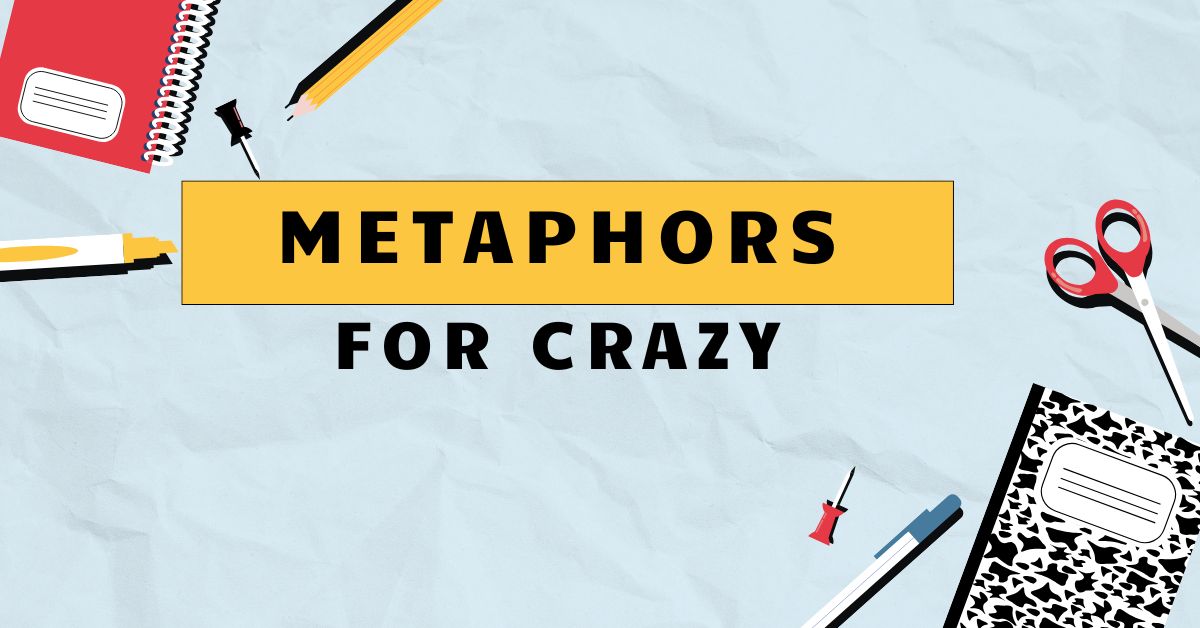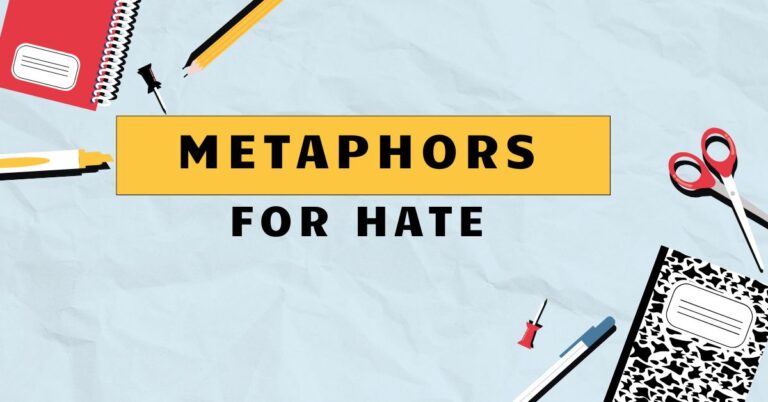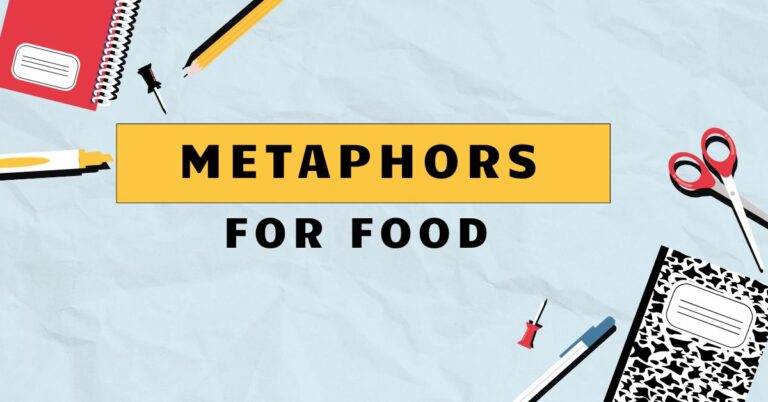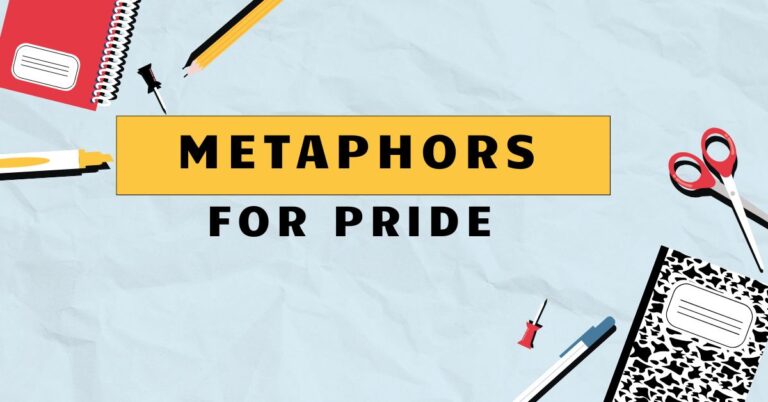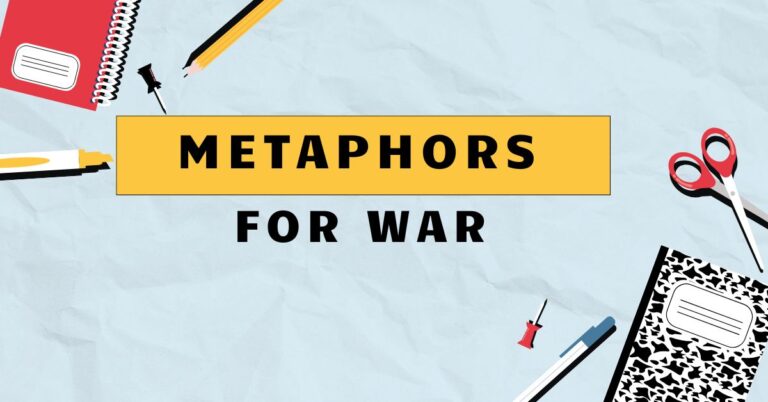43 Metaphors for Crazy: Understanding Figurative Language
Metaphors are powerful tools that enrich our language, adding color and depth to our expressions. When describing someone as “crazy,” we often turn to metaphors to convey the intensity and nature of their behavior or mental state.
Understanding these metaphors not only enhances our comprehension of figurative language but also provides insight into cultural perceptions and attitudes towards mental health. This article explores the various metaphors used to describe “crazy,” their structural elements, usage rules, and common pitfalls, offering a comprehensive guide for English learners and enthusiasts.
This article is designed for English language learners, educators, and anyone interested in exploring the nuances of figurative language. By delving into the world of metaphors for “crazy,” we can better understand how language shapes our perceptions and improve our ability to communicate effectively and sensitively.
Table of Contents
- Introduction
- Definition of Metaphor and Its Role in Describing “Crazy”
- Structural Breakdown of Common Metaphors
- Types of Metaphors Used for “Crazy”
- Examples of Metaphors for “Crazy”
- Usage Rules and Considerations
- Common Mistakes When Using These Metaphors
- Practice Exercises
- Advanced Topics: Cultural Sensitivity and Context
- Frequently Asked Questions
- Conclusion
Definition of Metaphor and Its Role in Describing “Crazy”
Ametaphoris a figure of speech that directly compares two unrelated things, asserting that they are the same. Unlike similes, which use “like” or “as” to make a comparison, metaphors imply a similarity, creating a vivid and often surprising connection in the reader’s mind.
Metaphors are essential in language because they allow us to describe abstract or complex concepts in more relatable and understandable terms.
When used to describe someone as “crazy,” metaphors often highlight specific aspects of their behavior, such as unpredictability, intensity, or lack of control. For example, saying someone is “a loose cannon” suggests they are unpredictable and potentially dangerous, while describing them as “off their rocker” implies a loss of mental stability.
These metaphors offer a more nuanced and evocative way to express the idea of madness or irrationality than simply using the word “crazy” itself.
The use of metaphors to describe mental states is deeply rooted in cultural perceptions. These metaphors can reveal societal attitudes towards mental illness, ranging from fear and stigmatization to empathy and understanding.
By examining the metaphors we use, we can gain insight into these underlying cultural beliefs and their impact on how we perceive and treat individuals with mental health conditions.
Structural Breakdown of Common Metaphors
Metaphors typically consist of two main elements: thetenor(the subject being described) and thevehicle(the object or concept used to describe the subject). The tenor is the person deemed “crazy,” and the vehicle is the image or idea used to convey their state of mind.
Understanding this structure helps in analyzing and interpreting the meaning of metaphors.
For instance, in the metaphor “He’s a ticking time bomb,” the tenor is the person, and the vehicle is the “ticking time bomb.” The connection between the two lies in the shared characteristic of impending explosion or unpredictable outburst. The metaphor suggests that the person is likely to erupt in anger or irrational behavior at any moment.
The effectiveness of a metaphor depends on the strength and relevance of the connection between the tenor and the vehicle. A well-chosen metaphor can create a powerful and lasting impression, while a poorly chosen one may be confusing or ineffective.
The cultural context also plays a significant role in how a metaphor is understood and interpreted. What might be a common and accepted metaphor in one culture could be unfamiliar or offensive in another.
Types of Metaphors Used for “Crazy”
There are several common types of metaphors used to describe someone as “crazy,” each drawing on different imagery and associations. These include animalistic, weather, mechanical, fire, and abstract metaphors.
Animalistic Metaphors
Animalistic metaphors compare a person’s behavior to that of an animal, often highlighting traits such as wildness, unpredictability, or lack of control. These metaphors can be particularly vivid and evocative, drawing on our innate understanding of animal behavior.
Examples include “He’s gone ape,” “She’s a wildcat,” and “He’s like a caged animal.” These metaphors suggest a loss of reason and control, implying that the person is behaving irrationally or aggressively.
Weather Metaphors
Weather metaphors use weather phenomena to describe a person’s emotional state or behavior. These metaphors often convey a sense of turbulence, instability, or unpredictability.
Examples include “She’s a whirlwind,” “He’s a storm brewing,” and “She’s clouded with confusion.” These metaphors suggest that the person’s emotions are intense and potentially overwhelming, like a powerful storm.
Mechanical Metaphors
Mechanical metaphors compare a person to a machine, often implying that something is broken, malfunctioning, or out of control. These metaphors can suggest a loss of rationality or a detachment from reality.
Examples include “He’s lost his screws,” “She’s a broken record,” and “He’s off his rocker.” These metaphors suggest that the person’s mental processes are not functioning properly, like a machine that needs repair.
Fire Metaphors
Fire metaphors use the imagery of fire to describe a person’s intense emotions or behavior. These metaphors often convey a sense of passion, anger, or destructiveness.
Examples include “He’s burning with rage,” “She’s a firecracker,” and “He’s completely burned out.” These metaphors suggest that the person’s emotions are consuming and potentially destructive, like a raging fire.
Abstract Metaphors
Abstract metaphors use abstract concepts or ideas to describe a person’s state of mind. These metaphors can be more subtle and nuanced, often relying on metaphorical associations rather than direct comparisons.
Examples include “He’s lost his marbles,” “She’s out of her mind,” and “He’s living in a different world.” These metaphors suggest a detachment from reality or a loss of mental clarity.
Examples of Metaphors for “Crazy”
The following tables provide examples of metaphors for “crazy,” organized by category. Each example includes a brief explanation of the metaphor’s meaning and implications.
Animalistic Metaphor Examples
Animalistic metaphors vividly portray a person’s behavior as wild, unpredictable, or lacking control. These comparisons often draw on our inherent understanding of animal characteristics.
| Metaphor | Meaning | Implication |
|---|---|---|
| He’s gone ape. | He’s become extremely agitated and irrational. | Loss of control, aggressive behavior. |
| She’s a wildcat. | She’s fierce, unpredictable, and potentially dangerous. | Aggression, unpredictability. |
| He’s like a caged animal. | He’s restless, frustrated, and likely to lash out. | Confinement, suppressed anger. |
| She’s acting like a mad dog. | She’s behaving aggressively and irrationally. | Aggression, irrationality. |
| He’s a real nutcase. | He’s considered eccentric or crazy by others. | Odd behavior, social deviation. |
| She’s a basket case. | She’s emotionally overwhelmed and unable to function properly. | Emotional instability, inability to cope. |
| He’s barking mad. | He’s completely insane or irrational. | Complete loss of reason, extreme irrationality. |
| She’s batty. | She’s slightly eccentric or crazy. | Mild eccentricity, odd behavior. |
| He’s buggy. | He’s slightly crazy or malfunctioning. | Mild irrationality, minor mental issues. |
| She’s cuckoo. | She’s considered crazy or foolish. | Foolishness, irrational behavior. |
| He’s daft as a brush. | He’s extremely foolish or crazy. | Extreme foolishness, lack of intelligence. |
| She’s dotty. | She’s slightly eccentric or crazy. | Mild eccentricity, odd behavior. |
| He’s gaga. | He’s senile or crazy. | Senility, loss of mental faculties. |
| She’s got bats in the belfry. | She’s crazy or eccentric. | Eccentricity, odd behavior. |
| He’s loopy. | He’s crazy or silly. | Silliness, irrational behavior. |
| She’s mad as a hatter. | She’s completely insane or irrational. | Complete loss of reason, extreme irrationality. |
| He’s not all there. | He’s not fully mentally present or sane. | Lack of mental clarity, diminished mental capacity. |
| She’s nuts. | She’s crazy or eccentric. | Eccentricity, odd behavior. |
| He’s out to lunch. | He’s not paying attention or is mentally absent. | Lack of attention, mental absence. |
| She’s screwy. | She’s crazy or eccentric. | Eccentricity, odd behavior. |
| He’s a raving lunatic. | He’s behaving in a wildly irrational and uncontrolled manner. | Extreme irrationality, uncontrolled behavior. |
Weather Metaphor Examples
Weather metaphors effectively convey the turbulence, instability, and unpredictability associated with certain emotional states. They paint a picture of inner turmoil and potential chaos.
| Metaphor | Meaning | Implication |
|---|---|---|
| She’s a whirlwind. | She’s energetic, chaotic, and unpredictable. | Unpredictability, chaos. |
| He’s a storm brewing. | He’s about to explode with anger or emotion. | Impending outburst, suppressed emotions. |
| She’s clouded with confusion. | She’s unable to think clearly due to mental distress. | Mental confusion, lack of clarity. |
| He’s in a fog. | He’s disoriented and mentally unclear. | Disorientation, mental haziness. |
| She’s under the weather mentally. | She’s not feeling well emotionally or mentally. | Emotional distress, mental discomfort. |
| He’s snowed under with stress. | He’s overwhelmed by stress and responsibilities. | Overwhelmed, excessive stress. |
| She’s a ray of sunshine on a cloudy day (ironically). | She’s a source of joy in a difficult situation (but in this context, the opposite is true). | Inverted meaning, sarcasm. |
| He’s gone to a dark place. | He’s experiencing a period of depression or mental distress. | Depression, mental distress. |
| She’s weathering the storm. | She’s enduring a difficult period of mental or emotional struggle. | Endurance, perseverance through difficulty. |
| He’s a force of nature. | He’s powerful and unstoppable, often in an overwhelming way. | Overwhelming power, unstoppable force. |
| She’s in a mental drought. | She’s experiencing a period of emotional or mental emptiness. | Emotional emptiness, lack of mental stimulation. |
| He’s a mental blizzard. | He’s experiencing a chaotic and overwhelming mental state. | Chaotic mental state, overwhelming thoughts. |
| She’s on cloud nine (ironically). | She’s extremely happy (but in this context, detached from reality). | Inverted meaning, detachment from reality. |
| He’s lost in the clouds. | He’s daydreaming or lost in thought, detached from reality. | Daydreaming, detachment from reality. |
| She’s a thundercloud hanging over everyone. | She’s bringing a negative and oppressive atmosphere. | Negative atmosphere, oppressive presence. |
| He’s the calm before the storm (ironically). | He appears calm but is about to explode with emotion. | Impending outburst, suppressed emotions. |
| She’s a mental monsoon. | She’s experiencing an overwhelming flood of emotions. | Overwhelming emotions, emotional flood. |
| He’s a mental heatwave. | He’s experiencing intense and overwhelming mental activity. | Intense mental activity, overwhelming thoughts. |
| She’s a mental ice age. | She’s emotionally cold and detached. | Emotional coldness, detachment. |
| He’s a mental earthquake. | He’s causing disruption and chaos with his mental state. | Disruption, chaos. |
| She’s spaced out. | She’s mentally detached from her surroundings. | Detachment, lack of awareness. |
Mechanical Metaphor Examples
Mechanical metaphors effectively convey the idea of something being broken, malfunctioning, or simply out of control. They suggest a loss of rationality and a detachment from reality.
| Metaphor | Meaning | Implication |
|---|---|---|
| He’s lost his screws. | He’s become mentally unstable or irrational. | Mental instability, irrationality. |
| She’s a broken record. | She’s repeating the same thing over and over again. | Repetitive behavior, obsession. |
| He’s off his rocker. | He’s lost his mind or is behaving irrationally. | Loss of reason, irrational behavior. |
| She’s short-circuiting. | She’s experiencing a mental breakdown or confusion. | Mental breakdown, confusion. |
| He’s a loose cannon. | He’s unpredictable and potentially dangerous. | Unpredictability, potential danger. |
| She’s running on fumes. | She’s exhausted and mentally depleted. | Exhaustion, mental depletion. |
| He’s got a few wires crossed. | He’s confused or mentally disorganized. | Confusion, mental disorganization. |
| She’s like a machine gone haywire. | She’s behaving erratically and uncontrollably. | Erratic behavior, lack of control. |
| He’s stuck in a loop. | He’s repeating the same thoughts or actions compulsively. | Compulsive behavior, repetitive thoughts. |
| She’s a cog in the machine (ironically). | She’s a small, insignificant part of a larger system (but here, her mind is malfunctioning). | Inverted meaning, mental malfunction. |
| He’s a glitch in the system. | He’s an anomaly or problem that disrupts the normal order. | Disruption, anomaly. |
| She’s lost her programming. | She’s lost her sense of direction or purpose. | Loss of direction, lack of purpose. |
| He’s running out of memory. | He’s experiencing memory loss or cognitive decline. | Memory loss, cognitive decline. |
| She’s a walking time bomb. | She’s about to explode with anger or emotion. | Impending outburst, suppressed emotions. |
| He’s a broken clock. | He’s unreliable and unpredictable. | Unreliability, unpredictability. |
| She’s a faulty circuit. | She’s experiencing mental instability or malfunction. | Mental instability, malfunction. |
| He’s a machine with a mind of its own (ironically). | He’s uncontrollable and unpredictable. | Uncontrollability, unpredictability. |
| She’s a mental robot. | She’s acting without emotion or independent thought. | Lack of emotion, lack of independent thought. |
| He’s a stuck record. | He’s repeating the same thing over and over again. | Repetitive behavior, obsession. |
| She’s a mental engine running without fuel. | She’s trying to function without the necessary resources or energy. | Lack of resources, lack of energy. |
| He’s wound up too tight. | He’s extremely tense and anxious. | Extreme tension, anxiety. |
Fire Metaphor Examples
Fire metaphors powerfully illustrate the intense emotions, anger, and potential for destruction associated with certain mental states. They convey a sense of being consumed by inner turmoil.
| Metaphor | Meaning | Implication |
|---|---|---|
| He’s burning with rage. | He’s experiencing intense anger and resentment. | Intense anger, resentment. |
| She’s a firecracker. | She’s energetic, explosive, and unpredictable. | Unpredictability, explosiveness. |
| He’s completely burned out. | He’s exhausted and emotionally depleted. | Exhaustion, emotional depletion. |
| She’s a hot mess. | She’s chaotic, disorganized, and emotionally unstable. | Chaos, emotional instability. |
| He’s on fire (ironically). | He’s doing very well (but here, he’s mentally unstable). | Inverted meaning, mental instability. |
| She’s playing with fire. | She’s taking risks that could lead to danger or harm. | Risk-taking, potential danger. |
| He’s a volcano about to erupt. | He’s about to explode with anger or emotion. | Impending outburst, suppressed emotions. |
| She’s a mental inferno. | She’s experiencing intense and overwhelming mental turmoil. | Intense mental turmoil, overwhelming thoughts. |
| He’s a slow burn. | He’s gradually becoming more angry or unstable. | Gradual escalation, increasing instability. |
| She’s a mental wildfire. | She’s spreading chaos and destruction with her mental state. | Chaos, destruction. |
| He’s a mental spark. | He’s unpredictable and prone to sudden outbursts. | Unpredictability, sudden outbursts. |
| She’s a mental ember. | She’s smoldering with suppressed emotions. | Suppressed emotions, smoldering anger. |
| He’s a mental bonfire. | He’s a source of intense and consuming mental activity. | Intense mental activity, consuming thoughts. |
| She’s a mental torch. | She’s carrying a burden of intense emotions or thoughts. | Burden of emotions, intense thoughts. |
| He’s a mental furnace. | He’s processing intense thoughts and emotions. | Intense thoughts, processing emotions. |
| She’s a mental crucible. | She’s undergoing a transformative and challenging mental experience. | Transformative experience, challenging thoughts. |
| He’s a mental forge. | He’s shaping and creating new ideas or thoughts in a chaotic way. | Creating new ideas, chaotic thinking. |
| She’s a mental kiln. | She’s being tempered and refined by intense mental processes. | Tempering, refining thoughts. |
| He’s a mental blast furnace. | He’s undergoing an extremely intense and overwhelming mental process. | Extremely intense process, overwhelming thoughts. |
| She’s a mental supernova. | She’s experiencing a sudden and dramatic burst of mental activity. | Sudden burst, dramatic activity. |
| He’s seeing red. | He’s extremely angry and losing control. | Extreme anger, loss of control. |
Abstract Metaphor Examples
Abstract metaphors use concepts or ideas to describe a person’s state of mind, often suggesting a detachment from reality or a loss of mental clarity. These metaphors rely on metaphorical associations rather than direct comparisons.
| Metaphor | Meaning | Implication |
|---|---|---|
| He’s lost his marbles. | He’s become mentally unstable or irrational. | Mental instability, irrationality. |
| She’s out of her mind. | She’s behaving irrationally or insanely. | Irrational behavior, insanity. |
| He’s living in a different world. | He’s detached from reality and has his own perception of things. | Detachment from reality, altered perception. |
| She’s not playing with a full deck. | She’s not mentally sharp or intelligent. | Lack of intelligence, mental deficiency. |
| He’s got a screw loose. | He’s slightly crazy or eccentric. | Eccentricity, odd behavior. |
| She’s around the bend. | She’s crazy or eccentric. | Eccentricity, odd behavior. |
| He’s a sandwich short of a picnic. | He’s not very intelligent or sane. | Lack of intelligence, lack of sanity. |
| She’s a few bricks short of a load. | She’s not very intelligent or sane. | Lack of intelligence, lack of sanity. |
| He’s not wrapped too tight. | He’s not very intelligent or sane. | Lack of intelligence, lack of sanity. |
| She’s off her trolley. | She’s crazy or eccentric. | Eccentricity, odd behavior. |
| He’s one brick short. | He’s not very intelligent or sane. | Lack of intelligence, lack of sanity. |
| She’s got a short fuse. | She gets angry easily. | Easily angered, irritable. |
| He’s lost the plot. | He’s confused or has lost track of what’s happening. | Confusion, loss of track. |
| She’s gone off the deep end. | She’s become extremely irrational or emotional. | Irrationality, emotional instability. |
| He’s not firing on all cylinders. | He’s not functioning at his best mentally. | Diminished mental capacity, lack of focus. |
| She’s on another planet. | She’s detached from reality and unaware of her surroundings. | Detachment from reality, lack of awareness. |
| He’s not clicking on all buttons. | He’s not functioning at his best mentally. | Diminished mental capacity, lack of focus. |
| She’s a space cadet. | She’s absent-minded and detached from reality. | Absent-mindedness, detachment from reality. |
| He’s lost in space. | He’s confused and disoriented. | Confusion, disorientation. |
| She’s a mental case. | She’s considered to have serious mental problems. | Serious mental problems, instability. |
| He’s lost it. | He’s lost control of his emotions or mental state. | Loss of control, emotional instability. |
Usage Rules and Considerations
When using metaphors for “crazy,” it’s crucial to consider the context and audience. Some metaphors may be considered offensive or insensitive, especially when used to describe individuals with mental health conditions.
It’s important to be mindful of the potential impact of your words and to choose metaphors that are appropriate and respectful.
Avoid using metaphors that perpetuate negative stereotypes or stigmatize mental illness. For example, metaphors that depict individuals with mental health conditions as violent or dangerous can reinforce harmful beliefs and contribute to discrimination.
Instead, opt for metaphors that convey empathy and understanding.
Consider the cultural context as well. Some metaphors may have different connotations in different cultures.
What might be an acceptable metaphor in one culture could be offensive in another. It’s important to be aware of these cultural differences and to use metaphors that are appropriate for the specific audience.
Furthermore, be aware of the level of formality required by the situation. Some metaphors are informal and colloquial, while others are more formal and literary.
Choose metaphors that are appropriate for the tone and style of your writing or speech.
Common Mistakes When Using These Metaphors
One common mistake is using metaphors that are clichéd or overused. These metaphors can lose their impact and may even sound trite or unoriginal.
Try to find fresh and creative ways to express the idea of “crazy” using metaphors that are both evocative and insightful.
Another mistake is using metaphors that are inconsistent or contradictory. Make sure that the tenor and vehicle of your metaphor align logically and that the comparison is clear and coherent.
Avoid mixing metaphors that create confusing or nonsensical images.
Finally, be careful not to overuse metaphors. While metaphors can add color and depth to your language, too many metaphors can become overwhelming and distracting.
Use metaphors sparingly and strategically to enhance your message, not to obscure it.
Here’s a table illustrating common mistakes and their corrections:
| Incorrect | Correct | Explanation |
|---|---|---|
| He’s a loose cannon and a ray of sunshine. | He’s a loose cannon. | Inconsistent metaphors; “loose cannon” implies danger, while “ray of sunshine” implies positivity. |
| She’s crazier than a bag of hammers. | She’s crazier than a sack full of cats. | “Bag of hammers” is a less common and less effective cliché. |
| He’s a little bit off his rocker, but also completely grounded. | He’s a little bit off his rocker. | Contradictory metaphors; “off his rocker” implies instability, while “grounded” implies stability. |
| She’s a firecracker, but also an iceberg. | She’s a firecracker. | Inconsistent metaphors; “firecracker” implies explosiveness, while “iceberg” implies coldness. |
| He’s burning with rage and cool as a cucumber. | He’s burning with rage. | Contradictory metaphors; “burning with rage” implies anger, while “cool as a cucumber” implies calmness. |
Practice Exercises
Test your understanding of metaphors for “crazy” with these practice exercises. Identify the type of metaphor used in each sentence and explain its meaning.
Exercise 1: Identifying Metaphor Types
| Question | Answer |
|---|---|
| 1. He’s gone completely bananas. | Animalistic metaphor: He’s become extremely irrational or crazy. |
| 2. She’s a storm of emotions. | Weather metaphor: She’s experiencing intense and overwhelming emotions. |
| 3. He’s lost his mind. | Abstract metaphor: He’s become mentally unstable or irrational. |
| 4. She’s a ticking time bomb. | Mechanical metaphor: She’s about to explode with anger or emotion. |
| 5. He’s burning with passion (ironically, referring to obsession). | Fire metaphor: He’s experiencing intense and consuming obsession. |
| 6. She’s off her rocker. | Mechanical metaphor: She’s behaving irrationally or has lost her mind. |
| 7. He’s a raving lunatic. | Animalistic metaphor: He’s behaving in a wildly irrational and uncontrolled manner. |
| 8. She’s a whirlwind of activity (ironically, referring to chaotic behavior). | Weather metaphor: She’s exhibiting chaotic and unpredictable behavior. |
| 9. He’s a few sandwiches short of a picnic. | Abstract metaphor: He’s not very intelligent or sane. |
| 10. He’s not playing with a full deck. | Abstract metaphor: He’s not very intelligent or sane. |
Exercise 2: Using Metaphors in Sentences
Complete the following sentences using an appropriate metaphor for “crazy” from the list provided.
List of Metaphors: gone ape, a broken record, a storm brewing, lost his marbles, a loose cannon, a firecracker, out of her mind, seeing red, off his rocker, a few screws loose
| Question | Answer |
|---|---|
| 1. After losing his job, he completely ____. |

